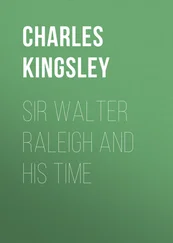Charles King - Campaigning with Crook, and Stories of Army Life
Здесь есть возможность читать онлайн «Charles King - Campaigning with Crook, and Stories of Army Life» — ознакомительный отрывок электронной книги совершенно бесплатно, а после прочтения отрывка купить полную версию. В некоторых случаях можно слушать аудио, скачать через торрент в формате fb2 и присутствует краткое содержание. Жанр: foreign_prose, на английском языке. Описание произведения, (предисловие) а так же отзывы посетителей доступны на портале библиотеки ЛибКат.
- Название:Campaigning with Crook, and Stories of Army Life
- Автор:
- Жанр:
- Год:неизвестен
- ISBN:нет данных
- Рейтинг книги:5 / 5. Голосов: 1
-
Избранное:Добавить в избранное
- Отзывы:
-
Ваша оценка:
- 100
- 1
- 2
- 3
- 4
- 5
Campaigning with Crook, and Stories of Army Life: краткое содержание, описание и аннотация
Предлагаем к чтению аннотацию, описание, краткое содержание или предисловие (зависит от того, что написал сам автор книги «Campaigning with Crook, and Stories of Army Life»). Если вы не нашли необходимую информацию о книге — напишите в комментариях, мы постараемся отыскать её.
Campaigning with Crook, and Stories of Army Life — читать онлайн ознакомительный отрывок
Ниже представлен текст книги, разбитый по страницам. Система сохранения места последней прочитанной страницы, позволяет с удобством читать онлайн бесплатно книгу «Campaigning with Crook, and Stories of Army Life», без необходимости каждый раз заново искать на чём Вы остановились. Поставьте закладку, и сможете в любой момент перейти на страницу, на которой закончили чтение.
Интервал:
Закладка:
On the 6th, a courier was sent in to Fort Laramie, seventy miles away, while the regiment camped along the stream to wait for orders. Towards ten o'clock on the following morning, while the camp was principally occupied in fighting flies, a party of the junior officers were returning from a refreshing bath in a deep pool of the stream, when Buffalo Bill came hurriedly towards them from the general's tent. His handsome face wore a look of deep trouble, and he brought us to a halt in stunned, awe-stricken silence with the announcement, "Custer and five companies of the Seventh wiped out of existence. It's no rumor – General Merritt's got the official despatch."
Now we knew that before another fortnight the Fifth would be sent to reinforce General Crook on the Big Horn. Any doubts as to whether a big campaign was imminent were dispelled. Few words were spoken – the camp was stilled in soldierly mourning. That night Lieutenant Hall rode in with later news and letters. He had made the perilous trip from Laramie alone, but confirmed the general impression that we would be speedily ordered in to the line of the North Platte, to march by way of Fetterman to Crook's support. On Wednesday, the 12th, our move began, no orders having been received until the night before. Just what we were to do, probably no one knew but Merritt; he didn't tell, and I never asked questions. Evening found us camping near the Cardinal's Chair at the head of the Niobrara, in a furious storm of thunder, lightning, and rain, which lasted all night, and, wet to the skin, we were glad enough to march off at daybreak on the 13th, and still more glad to camp again that evening under the lee of friendly old Rawhide Peak.
We were now just one long day's march from Fort Laramie, and confidently expected to make it on the following day. At reveille on the 14th, however, a rumor ran through the camp that Merritt had received despatches during the night indicating that there was a grand outbreak among the Indians at the reservation. Of course we knew that they would be vastly excited and encouraged by the intelligence of the Custer massacre. Furthermore, it was well known that there were nearly a thousand of the Cheyennes, the finest warriors and horsemen of the plains, who as yet remained peaceably at the Red Cloud or Spotted Tail Reservations along the White River, but they were eager for a pretext on which to "jump," and now they might be expected to leave in a body at any moment and take to the war-path. Our withdrawal from the Cheyenne River left the favorite route again open, and the road to the Black Hills was again traversed by trains of wagons and large parties of whites on their way to the mines, a sight too tempting for their covetous eyes. Major Jordan, commanding the post of Camp Robinson, had hurriedly described the situation in a despatch to Merritt, and when "Boots and saddles" sounded, and we rode into line, we saw the quartermaster guiding his wagons back over the ridge we had crossed the day before, and in a few minutes were following in their tracks. Away to the east we marched that morning, and at noon were halted where the road connecting Fort Laramie with the reservation crossed the Rawhide Creek. Here Captain Adam with Company "C" left us and pushed forward to the Niobrara Crossing, twenty-five miles nearer the Indian villages, while the indefatigable Major Stanton, "our polemical paymaster," was hurried off to Red Cloud, to look into the situation. The rest of us waited further developments.
On Saturday, the 15th of July, just at noon, General Merritt received the despatch from the Red Cloud Agency which decided the subsequent movement of his command. It led to his first "lightning march" with his new regiment; it impelled him to a move at once bold and brilliant. It brought about an utter rout and discomfiture among the would-be allies of Sitting Bull, and, while it won him the commendation of the lieutenant-general, it delayed us a week in finally reaching Crook, and there was some implied criticism in remarks afterwards made.
In a mere narrative article there is little scope for argument. Merritt's information was from Major Stanton, substantially to the effect that eight hundred Cheyenne warriors would leave the reservation on Sunday morning, fully equipped for the war-path, and with the avowed intention of joining the hostiles in the Big Horn country. To continue on his march to Laramie, and let them go, would have been gross, if not criminal, neglect. To follow by the direct road to the reservation, sixty-five miles away, would have been simply to drive them out and hasten their move. Manifestly there was but one thing to be done: to throw himself across their path and capture or drive them back, and to do this he must, relatively speaking, march over three sides of a square while they were traversing the fourth, and must do it undiscovered .
If Merritt hesitated ten minutes, his most intimate associates, his staff, did not know it. Leaving a small guard with the wagon train, and ordering Lieutenant Hall to catch up with us at night, the general and seven companies swing into saddle, and at one o'clock are marching up the Rawhide, away from the reservation, and with no apparent purpose of interfering in any project, howsoever diabolical, that aboriginal fancy can suggest. We halt a brief half-hour under the Peak, fourteen miles away, water our thirsty horses in the clear, running stream, then remount, and, following our chief, lead away northwestward. By five p.m. we are heading square to the north; at sunset we are descending into the wide valley of the Niobrara, and just at ten p.m. we halt and unsaddle under the tall buttes of the Running Water, close by our old camp at Cardinal's Chair. Only thirty-five miles by the way we came, but horses must eat to live, and we have nothing but the buffalo grass to offer them. We post strong guards and pickets to prevent surprise, and scatter our horses well out over the hillsides to pick up all they can. Captain Hayes and I are detailed as officers of the guard and pickets for the night, and take ourselves off accordingly. At midnight, Lieutenant Hall arrives with his long wagon train. At three a.m., in the starlight, Merritt arouses his men; coffee and bacon are hurriedly served; the horses get a good breakfast of oats from the wagons, and at five a.m. we are climbing out of the valley to the north. And now, Messieurs les Cheyennes , we'll see who first will bivouac to-night upon the War Bonnet. You are but twenty-eight miles from it; we are fifty to the point where your great trail crosses the little stream. The Sioux, in their picturesque nomenclature, called it after the gorgeous head-piece of bead-work, plume and eagles' feathers, they wear in battle, the prized War Bonnet. The frontiersman, scorning the poetic, considers that he has fittingly, practically, anyway, translated it into Hat Creek, and even for such a name as this, three insignificant creeks within a few miles of one another claim precedence – and Indian and Horsehead creeks are placidly willing to share it with them.
The sun rises over the broad lands of the Sioux to the eastward as we leave the shadowy Niobrara behind. Merritt's swift-stepping gray at the head of the column keeps us on our mettle to save our distance, and the horses answer gamely to the pressing knees of their riders. At 10.15 we sight the palisade fortifications of the infantry company which guards the spring at the head of old Sage Creek, and Lieutenant Taylor eagerly welcomes us. Here, officers, men, and horses take a hurried but substantial lunch. We open fresh boxes of ammunition, and cram belts and pockets until every man is loaded like a deep-sea diver, and fairly bristles with deadly missiles. Then on we go. East-northeast over the rolling, treeless prairie, and far to our right and rear runs the high, rock-faced ridge that shuts out the cold north winds from the reservation. The day is hot; we are following the Black Hills road, and the dust rises in heavy clouds above us. But 'tis a long, long way to the Indian crossing, and we must be the first to reach it. At sunset a winding belt of green in a distant depression marks the presence of a stream. At eight p.m., silently under the stars, we glide in among the timbers. At nine the seven companies are unsaddled and in bivouac close under the bluffs, where a little plateau, around which the creek sweeps in almost complete circle, forms excellent defensive lair, secure against surprise. We have marched eighty-five miles in thirty-one hours, and here we are, square in their front, ready and eager to dispute with the Cheyennes their crossing on the morrow.
Читать дальшеИнтервал:
Закладка:
Похожие книги на «Campaigning with Crook, and Stories of Army Life»
Представляем Вашему вниманию похожие книги на «Campaigning with Crook, and Stories of Army Life» списком для выбора. Мы отобрали схожую по названию и смыслу литературу в надежде предоставить читателям больше вариантов отыскать новые, интересные, ещё непрочитанные произведения.
Обсуждение, отзывы о книге «Campaigning with Crook, and Stories of Army Life» и просто собственные мнения читателей. Оставьте ваши комментарии, напишите, что Вы думаете о произведении, его смысле или главных героях. Укажите что конкретно понравилось, а что нет, и почему Вы так считаете.












